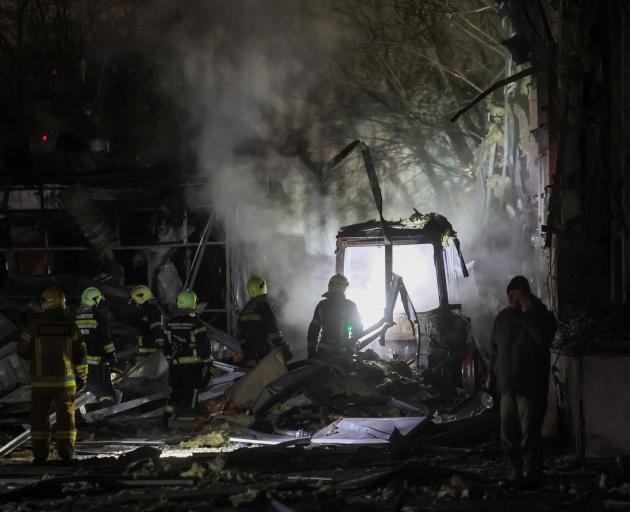

But that debate was largely settled once human beings learned about their deeper past. It’s linear. Once every human being was a hunter-gatherer; now almost none of us are. Once nobody lived in groups more than a couple of hundred strong because bigger groups just fissioned; now most of us live in societies many millions strong.
You don’t have to call it "progress", but history certainly has a direction. Which is not to say that it’s purely linear.
Just as rivers always flow downstream but may contain many eddies and whirlpools, history can double back on itself. The history of war has already done that several times. There is reason to suspect that it may now be doing it again.
Before the rise of big civilisations, battles between the little human groups of pre-history were frequent, relatively low-intensity, but cumulatively very deadly. Everybody lived on the front line all the time, and early anthropologists estimated that 30% of males (and 5% of females) were killed in war in every generation.
The advent of mass societies brought much bigger battles, but they were less frequent and involved a much smaller proportion of the society. (The Roman army at its peak was just under half a million men; the Roman population at that time was around 50 million.)
A lot of people got killed whenever pastoral peoples like the Mongols broke into other civilisations, but medieval warfare in Europe and its parallels in China and India stayed relatively small until the 1600s. Then Europe went crazy.
The Thirty Years War (1618-1648) began mainly as a religious civil war in the German-speaking lands, but it ended up as the "war of all against all" and an estimated 8 million people died. That was about 12% of Europe’s population at that time, and it frightened the survivors into making new rules.
Starting in the mid-1600s, existing countries became sovereign, and in the next century and a-half no major European state was carved up except Poland. Armies became small and professional, and war in Europe shrank back down to a marginal activity that scarcely impinged on the civilian sphere.
But then came the French Revolution in 1789 and the Napoleonic wars that followed, with mass armies of volunteers, ideological conflict, and whole states being dismantled. Fast forward to World War 1, 11 million dead, and all the regimes on the losing side (plus several on the winning side) driven from power.
Then World War 2, 45 million dead, and nuclear weapons by the end. Once again, all the regimes on the losing side destroyed. Time for another go at taming the beast — and amazingly, this time it really seemed to work.
It has been 79 years since the last nuclear weapon was used in anger, and the death toll in wars has fallen from a million a month in 1945 to under 100,000 a year in the early 2020s. But now it’s going back up again — just a bit, maybe half a million in 2024 — but the trend line is worrisome.
Much more worrisome is the fact that just in the past few years all the institutional and legal barriers we put in place to prevent or limit the spread of war have been sabotaged or abandoned. The keystone of the system, the United Nations, was crippled long ago by rival vetoes, but now the foundations are being dug up and cast aside.
The bedrock on which the entire post-1945 system was built is the inviolability of borders. No changes to borders after that date will be accepted by the rest of the world if they were changed by force. Indeed, even attempts to change a border by force, whatever the justification, are illegal. Only voluntary, negotiated, uncoerced changes are acceptable.
That rule has enjoyed almost universal support in principle because all the players understood that this is the only way to end the endless cycle of wars. Nobody is actually obliged to go and fight some other country to stop it from breaking that rule, but their conquests will never be accepted by the rest of the world. So they might as well not do it.
That is the rule which is now being ignored by the greatest power in the system. Russia can claim that the "old border" of the Soviet Union included Ukraine, and China can at least claim an ethnic link with Taiwan, but Donald Trump demanding to take over Greenland, the Panama Canal, Canada and the Gaza Strip is empire-building of the crudest sort.
If he gets away with that, it’s back to the old ways again.
• Gwynne Dyer is an independent London journalist.












